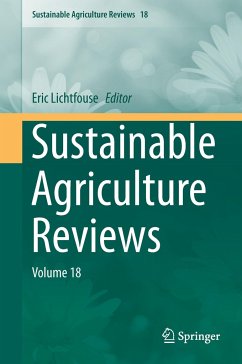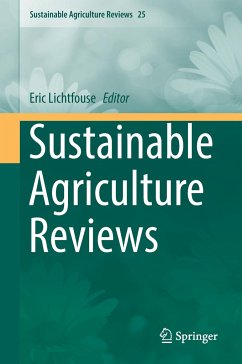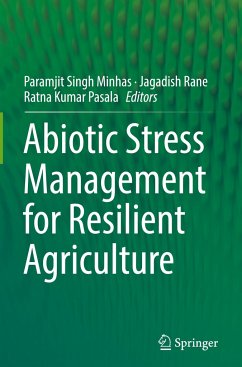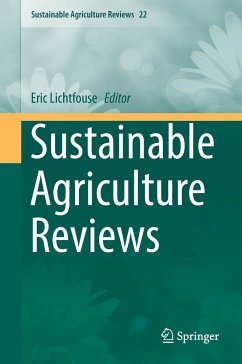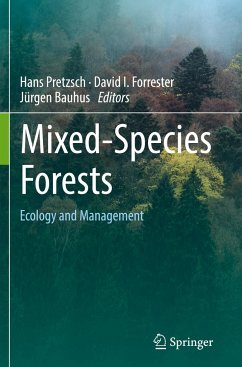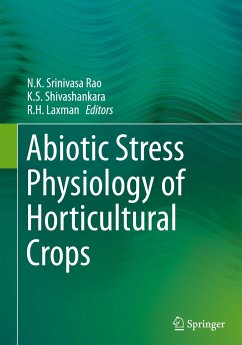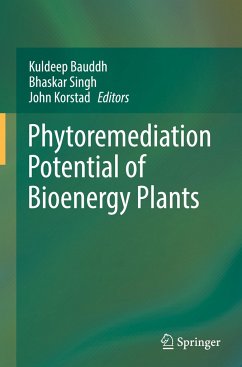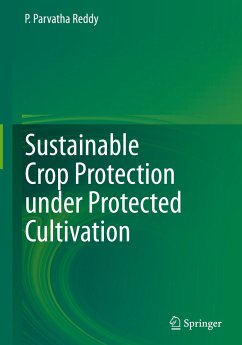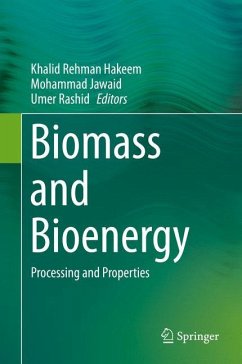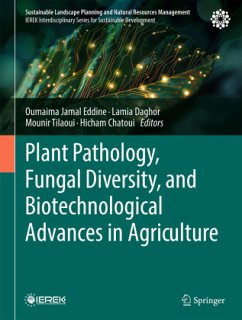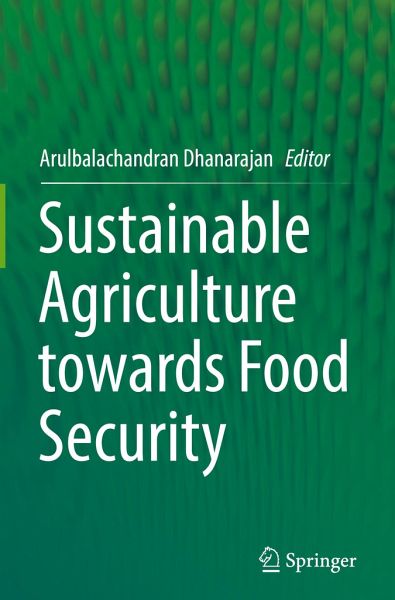
Sustainable Agriculture towards Food Security

PAYBACK Punkte
57 °P sammeln!
World's population is projected to reach 9.7 billion in 2050 and 11.2 billion in 2100. To meet the food demands of the exponentially increasing population, a massive food production is necessary. Agricultural production on land and aquatic systems pose negative impacts on the earth's ecosystems. Combined effects of climate change, land degradation, cropland losses, water scarcity and species infestations are major causes for loss of agricultural yields up to 25%. Therefore, the world needs a paradigm shift in agriculture development for sustainable food production and security through green re...
World's population is projected to reach 9.7 billion in 2050 and 11.2 billion in 2100. To meet the food demands of the exponentially increasing population, a massive food production is necessary. Agricultural production on land and aquatic systems pose negative impacts on the earth's ecosystems. Combined effects of climate change, land degradation, cropland losses, water scarcity and species infestations are major causes for loss of agricultural yields up to 25%. Therefore, the world needs a paradigm shift in agriculture development for sustainable food production and security through green revolution and eco-friendly approaches. Hence, agriculture practices must be sustained by the ability of farm land to produce food to satisfy human needs indefinitely as well as having sustainable impacts on the broader environment. The real agricultural challenges of the future as well as for today differ according to their geopolitical and socioeconomic contexts. Therefore, sustainable agriculture must be inclusive and have adaptability and flexibility over time to respond to demands for food production.
Considering all these points, this book has been prepared to address and insights to generate awareness of food security and focuses on perspectives of sustainable food production and security towards human society. The book facilitates to describes the classical and recent advancement of technologies and strategies by sustainable way through plant and animal origin including, breeding, pest management, tissue culture, transgenic techniques, bio and phytoremediation, environmental stress and resistance, plant growth enhancing microbes, bio-fertilizer and integrated approaches of food nutrition. Chapters provide a new dimension to discuss the issues, challenges and strategies of agricultural sustainability in a comprehensive manner. It aims at educating the students, advanced and budding researchers to develop novel approaches for sustainability with environmentally sound practices.
Considering all these points, this book has been prepared to address and insights to generate awareness of food security and focuses on perspectives of sustainable food production and security towards human society. The book facilitates to describes the classical and recent advancement of technologies and strategies by sustainable way through plant and animal origin including, breeding, pest management, tissue culture, transgenic techniques, bio and phytoremediation, environmental stress and resistance, plant growth enhancing microbes, bio-fertilizer and integrated approaches of food nutrition. Chapters provide a new dimension to discuss the issues, challenges and strategies of agricultural sustainability in a comprehensive manner. It aims at educating the students, advanced and budding researchers to develop novel approaches for sustainability with environmentally sound practices.



